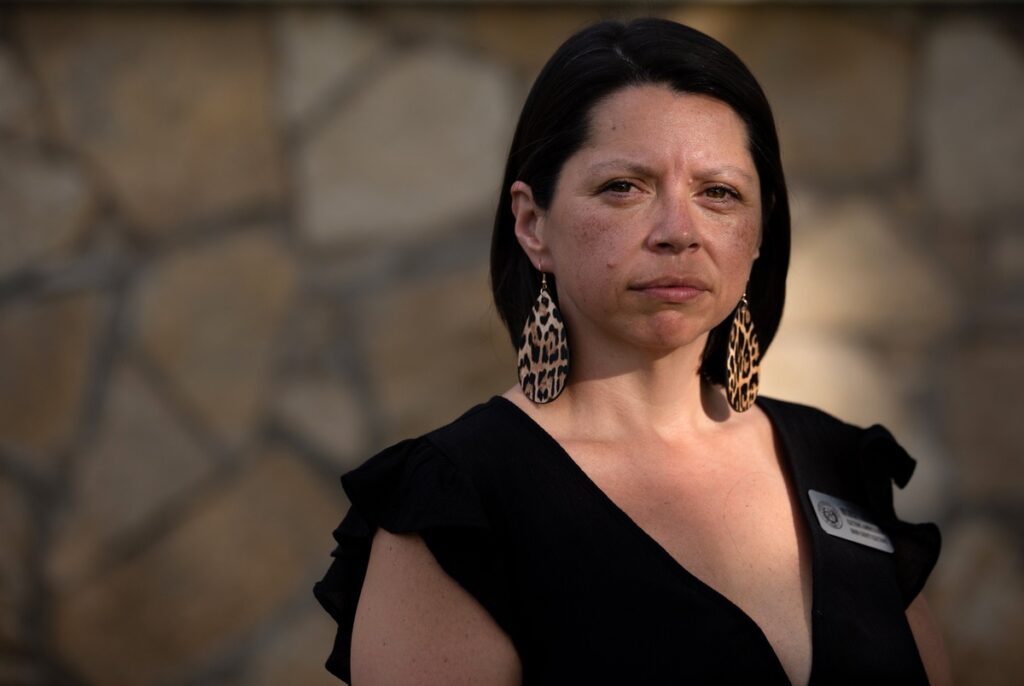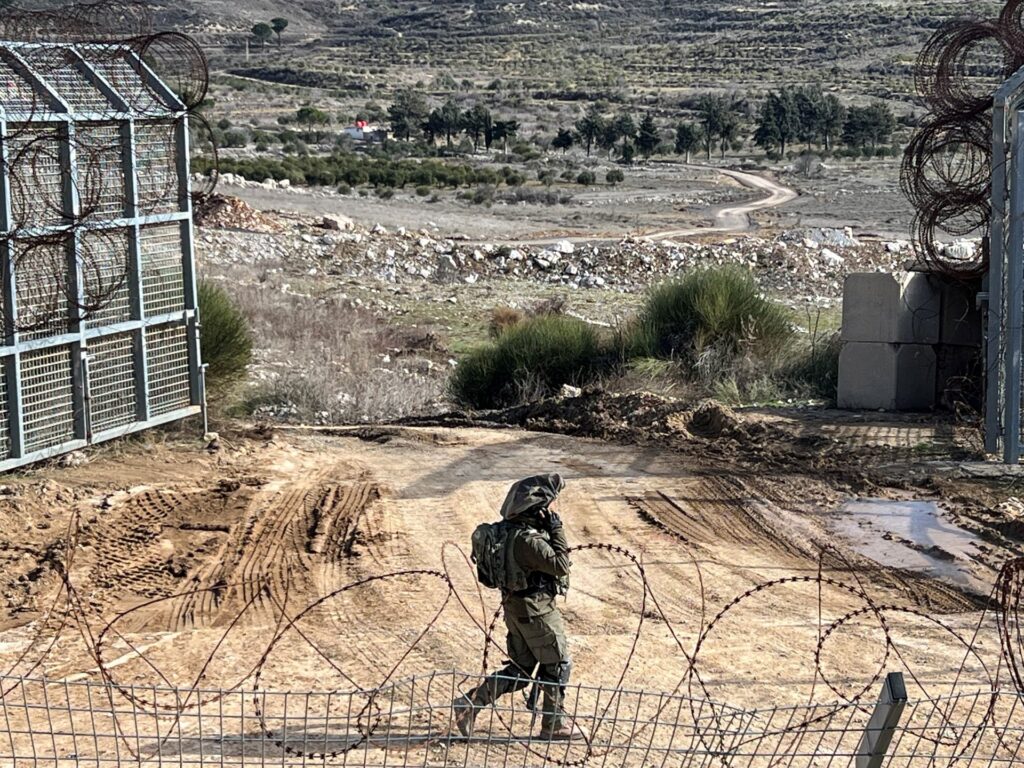Arvind Kejriwal to enter Parliament after Delhi poll debacle? Here’s how it’s possible

Sanjeev Arora – an industrialist from Punjab’s Ludhiana – was elected to the Rajya Sabha in 2022 – and his tenure is set to end in 2028. If he wins the bypoll to the Ludhiana West seat, he will have to resign as an MP. In that case, his seat may be allocated to another AAP leader.
National Science Day 2025: Honoring CV Raman’s legacy

The theme for National Science Day 2025 is “Empowering Indian Youth for Global Leadership in Science and Innovation for a Viksit Bharat (Developed India).”
Bexar County hires veteran election official pushed out of previous job amid right-wing criticism

Michele Carew was unanimously appointed as election administrator for the county that’s home to San Antonio, four years after leaving her post in Hood County.
How the Supreme Court of the United States and federal courts work and affect Texans

Here’s how federal courts help determine the fate of controversial issues, such as immigration laws, in Texas and beyond.
Texas’ has the highest rate of uninsured children, and it’s getting worse
Issues with Medicaid coverage, including long wait times, abrupt loss of coverage and lack of political will to expand it, have contributed to Texas’ high uninsured rate for children.
New poll finds about half of rural young people feel job market pressures in their hometowns

A new Gallup-Walton Family Foundation survey released Wednesday shows that nearly half of rural Generation Z Americans feel they can’t find fulfilling work in their communities and are considering moving. Rural Gen-Zers are also nearly 20 percentage points more likely to feel that way than their urban brethren. Urban young people also have a higher confidence in their ability to land crucial internships out of school, and parents of rural youths are similarly concerned about quality-of-life issues for their grown children and in their ability to accomplish their goals. Forty-nine percent of Gen Zers believe they can find a worthy job at home. Thirty-eight percent say they’re confident in their internship searches. LGBT AMERICANS REACH RECORD NUMBER, MORE LIKELY TO BE DEMOCRAT: POLL The pressures of the contemporary occupational landscape are also leading 77% of Gen Z adults to seek to move away from their hometowns, if they are able. But that feeling is met with countervailing sentiment against leaving home. More than half of urban Gen Zers say they are comfortable relocating out of state or even outside the U.S., while about half in rural areas prefer to entertain moving to another place within their state, at most. About two-fifths would consider moving out of state and only a few percent would think to leave the U.S. for a job. “The desire to stay closer to home contrasts with those in urban areas who are more likely to say they would like to leave their state (54%), or even the country (15%),” the poll found. “Career and education opportunities strongly influence young people’s decisions to relocate, but rural Gen Zers often face limited access compared to their urban peers,” said Stephanie Marken, senior partner for U.S. research at Gallup. “Expanding access to job training, career opportunities and higher education in rural areas could help more young people stay connected to their communities while pursuing their goals.” TRUMP’S SURPRISING NEW POLL NUMBERS Only one-fifth of adult Gen Z Americans who have moved away from their home areas mentioned the ability to live financially comfortably. Many, however, still love their hometowns despite a changing job landscape in recent years and decades. The panel was conducted in November, the week of the presidential election. Pollsters sampled 3,963 people ranging in age from 12 to 27 in all 50 states plus Washington, D.C. They were randomly selected using an address-based methodology, but the polling firm also said it uses random-digit telephone dialing to cover both landlines and cellphones. The margin of error was +/- 2.3 percentage points overall. A total of 382 respondents were in rural areas with a 7.3 percentage point margin, and 2,969 were from urban areas with a 2.7 percentage point margin of error. CLICK HERE TO GET THE FOX NEWS APP Despite facing fewer job and education opportunities, rural Gen Zers remain deeply connected to their communities, with their desire to move only slightly numerically higher than their urban peers (82% vs. 78%). The co-leader of the poll, the Walton Family Foundation, was launched by late Walmart founder Samuel Walton and his wife, Helen. The foundation seeks to improve the U.S. education system, communities and waterways, particularly in northwest Arkansas, where the family and mega-store chain are both based.
Shivling allegedly stolen from Dwarka temple on Shivratri eve, scuba-divers join search operation

Superintendent of Police (SP) Nitesh Pandey stated that teams have been deployed to locate the missing ‘Shivling’, with scuba divers and swimmers brought in to assist, as authorities suspect it may have been hidden in the sea.”
Video: Military plane crashes in Sudan
[unable to retrieve full-text content] Sources in Sudan say several people have been killed after a military plane crashed into a residential area.
Counting the climate cost of AI
[unable to retrieve full-text content] What’s the hidden climate cost of AI?
Israel bombs ‘military targets’ in southern Syria, outside Damascus

The Israeli military conducts air raids on what it described as military bases and command centres. The Israeli military has conducted air raids targeting what it described as military bases and command centres in southern Syria and outside the capital, Damascus. Israeli warplanes hit the town of Kisweh, approximately 20km (12 miles) south of Damascus, as well as the southern province of Deraa late on Tuesday, residents, security sources and local broadcaster Syria TV said. The Israeli army said it struck “military targets in southern Syria, including command centres and multiple sites containing weapons”, without specifying exact locations. Residents of Damascus reported hearing the sound of planes flying several low passes over the capital and a series of blasts. “The Air Force is attacking strongly in southern Syria as part of the new policy we have defined of pacifying southern Syria – and the message is clear: we will not allow southern Syria to become southern Lebanon,” Defence Minister Israel Katz’s spokesperson said in a statement. “Any attempt by the Syrian regime forces and the country’s terrorist organisations to establish themselves in the security zone in southern Syria will be met with fire,” the statement added. Advertisement The bombardment came hours after Syria condemned Israel’s incursion into the country’s south and demanded it withdraw, according to the closing statement of a national dialogue summit. The summit, organised by Syria’s new government, aimed to outline the country’s political roadmap after the toppling of President Bashar al-Assad in December. Israel moved forces into a United Nations-monitored demilitarised zone within Syria after al-Assad’s removal, a move that violated the 1974 disengagement agreement with Syria. On Sunday, Prime Minister Benjamin Netanyahu called for the “demilitarisation” of southern Syria, saying Israel “will not allow the new Syrian army to move into territory south of Damascus”. Palestinian group Hamas condemned the air strikes in the “strongest terms”, calling them “a blatant attack on Syrian sovereignty” and a continuation of Israel’s aggression against Arab nations. The attacks complicate efforts by Syria’s new administration to reunify the country, said Qutaiba Idlbi, a resident senior fellow for Syria at the Atlantic Council. He said the air raids coincided with the national dialogue summit on Syria’s political transition, which has already faced challenges, particularly in negotiations with the Druze community in the south and the Kurdish-led Syrian Democratic Forces in the northeast. “The strikes on Damascus are only going to serve to delay such agreement, as the powers in northeast and southern Syria will feel more empowered to seek deals and perhaps military support from external actors to increase their leverage in negotiations with Damascus,” Idlbi told Al Jazeera. Advertisement Adblock test (Why?)

